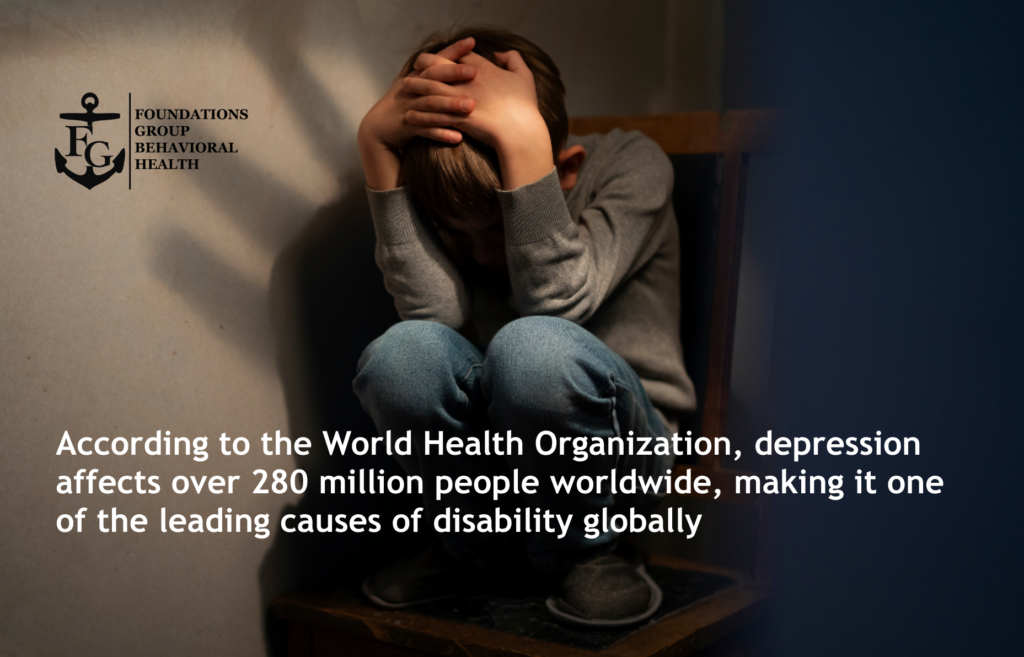Major Depressive Disorder (MDD) affects millions of people globally, creating obstacles in daily life through persistent sadness, loss of interest in once-loved activities, and difficulties maintaining functionality. However, with effective coping strategies, individuals can regain a sense of control and enhance their quality of life. At Foundations Group Behavioral Health, we integrate these strategies into our evidence-based care programs, including the Depressive Disorder Treatment Program, Anxiety Treatment Program, and Bipolar Disorder Treatment Program, to provide holistic support for mental health recovery.
Understanding Major Depressive Disorder
Major Depressive Disorder is more than a fleeting feeling of sadness; it’s a clinical condition characterized by a constellation of symptoms, including:
- Persistent feelings of sadness, hopelessness, or worthlessness.
- A loss of interest in activities that previously brought joy.
- Significant changes in appetite or sleep patterns.
- Difficulty concentrating or making decisions.
- Physical symptoms such as fatigue or unexplained aches and pains.
Effective treatment often requires a multifaceted approach that includes therapy, medication, and lifestyle adjustments. Our programs, such as the Psychiatric Day Treatment and Half Day Treatment Program, are designed to provide personalized care incorporating proven coping strategies to foster recovery and resilience.
Key Coping Strategies for Managing Major Depressive Disorder
Establish a Routine
Creating a structured daily routine can provide much-needed stability and reduce feelings of aimlessness. Set small, achievable goals, such as waking up at the same time every day or preparing nutritious meals. These milestones can foster a sense of accomplishment and control, which are essential for combating depressive symptoms.
Practice Mindfulness and Relaxation Techniques
Mindfulness practices, meditation, and breathing exercises can help individuals focus on the present moment, alleviating stress and anxiety. These techniques are integral components of our Anxiety Treatment Program and Outpatient Mental Health Program, helping clients cultivate emotional balance and relaxation.
Stay Physically Active
Engaging in regular physical activity boosts endorphin levels, which naturally enhance mood. Even light exercises, such as walking or yoga, can significantly reduce depressive symptoms and improve overall well-being.
Connect with Supportive People
Building a strong support system is vital for managing depression. Whether it’s joining support groups, confiding in trusted friends, or participating in group therapy sessions, social connection reduces feelings of isolation. Programs like our Trauma Disorder Treatment Program and Co-Occurring Disorder Treatment Program emphasize community and shared support.
Engage in Professional Therapy
Professional therapy, such as cognitive-behavioral therapy (CBT) or dialectical behavior therapy (DBT), helps individuals identify and reframe negative thought patterns while developing practical coping mechanisms. These therapies are core offerings at our Behavioral Health Treatment Center in Massachusetts.
Adopt Healthy Sleep Habits
Poor sleep can exacerbate depressive symptoms. Establish a consistent bedtime routine, limit screen time before bed, and create a comfortable sleep environment to promote restorative rest. Good sleep hygiene is a cornerstone of emotional well-being.
Focus on Nutrition
A balanced diet rich in nutrient-dense foods plays a pivotal role in mental health. Include fruits, vegetables, lean proteins, and whole grains in your meals to boost energy levels and improve mood.
Set Realistic Expectations
Recovery from depression is not instantaneous. Setting small, manageable goals rather than overwhelming yourself with large tasks can help maintain motivation and prevent feelings of failure.
Explore Creative Outlets
Expressing emotions through creative activities like journaling, painting, or playing music can provide relief and foster self-discovery. These outlets allow individuals to process their feelings in a constructive way.
Seek Professional Help
For severe symptoms or challenges in coping, professional treatment is essential. Our programs, including the Psychiatric Day Treatment, Half Day Treatment Program, and Outpatient Mental Health Program, are tailored to meet individual needs, offering comprehensive support on the path to recovery.
Holistic Care at Foundations Group Behavioral Health
At Foundations Group Behavioral Health, we recognize that depression impacts multiple facets of life—mental, emotional, and physical. Our holistic approach addresses these interconnected areas to provide lasting relief. By combining evidence-based therapies, mindfulness practices, and lifestyle changes, we empower clients to take charge of their recovery.
Specialized Programs for Comprehensive Care
We offer a range of specialized programs to address unique aspects of mental health challenges:
- Depressive Disorder Treatment Program: Focused therapies to manage symptoms and foster recovery.
- Anxiety Treatment Program: Comprehensive care for individuals with overlapping anxiety and depressive symptoms.
- Bipolar Disorder Treatment Program: Addressing depressive episodes as part of bipolar disorder management.
- Trauma Disorder Treatment Program: Support for individuals coping with depression stemming from unresolved trauma.
- Co-Occurring Disorder Treatment Program: Integrated care for clients dealing with both mental health and substance use disorders.
Each program is delivered by compassionate clinicians who are dedicated to helping clients achieve lasting wellness.

The Role of Evidence-Based Therapies in Recovery
Evidence-based therapies form the backbone of our treatment approach, ensuring clients receive care grounded in scientific research. Cognitive-behavioral therapy (CBT) and dialectical behavior therapy (DBT) are among the most effective modalities for addressing negative thought patterns, enhancing emotional regulation, and building resilience. These therapies are integral to our Psychiatric Day Treatment and Half Day Treatment Programs.
Lifestyle Changes as a Pillar of Recovery
In addition to therapy, lifestyle changes play a critical role in managing depression. These include:
- Mindfulness Practices: Helping clients stay grounded and reduce stress.
- Exercise Plans: Encouraging regular physical activity tailored to individual abilities.
- Nutritional Guidance: Promoting a healthy diet to improve mood and energy levels.
These strategies are seamlessly integrated into our holistic care model, empowering clients to regain control over their lives.
FAQs About Major Depressive Disorder
What is Major Depressive Disorder (MDD)?
Major Depressive Disorder is a clinical condition characterized by persistent sadness, loss of interest in activities, changes in appetite or sleep, and difficulty concentrating. It requires a comprehensive treatment plan that may include therapy, medication, and lifestyle adjustments.
How can I tell if I or a loved one has MDD?
Symptoms of MDD include prolonged feelings of sadness, hopelessness, fatigue, and physical symptoms like aches and pains. If these symptoms persist for more than two weeks, seeking a professional evaluation is recommended.
What treatments are available for MDD?
Treatments for MDD include therapy (e.g., CBT, DBT), medication, and holistic approaches such as mindfulness and physical activity. At Foundations Group Behavioral Health, we offer personalized programs like the Depressive Disorder Treatment Program and Anxiety Treatment Program.
Can lifestyle changes help manage MDD?
Yes, lifestyle changes like establishing a routine, engaging in regular exercise, practicing mindfulness, and maintaining a healthy diet can significantly reduce symptoms of MDD and improve overall well-being.
How do I know if I need professional help?
If depressive symptoms interfere with daily life, relationships, or work, and self-help strategies are not effective, it’s time to seek professional support. Programs like our Psychiatric Day Treatment and Half Day Treatment Program offer comprehensive care tailored to individual needs.
Are group therapy sessions beneficial for MDD?
Absolutely. Group therapy provides a supportive environment where individuals can share experiences, learn from others, and build a sense of community. This is especially helpful for reducing feelings of isolation.
What makes Foundations Group Behavioral Health unique?
Our holistic approach combines evidence-based therapies, mindfulness practices, and lifestyle changes to provide comprehensive care. We offer specialized programs tailored to individual needs, ensuring a personalized path to recovery.
Final Thoughts
Coping with Major Depressive Disorder requires patience, persistence, and a supportive environment. By adopting strategies such as mindfulness, regular exercise, and professional therapy, individuals can take meaningful steps toward recovery. At Foundations Group Behavioral Health, we’re here to guide you through every stage of this journey with care and compassion.
If you or a loved one are struggling with depression, don’t wait to seek help. Our evidence-based programs, including the Depressive Disorder Treatment Program, Anxiety Treatment Program, and Co-Occurring Disorder Treatment Program, are designed to provide the tools you need to heal and thrive.
Take the Next Step
Whether you’re considering our Trauma Disorder Treatment Program, Co-Occurring Disorder Treatment Program, or another level of care, we’re here to support you every step of the way.
Call us today at 888.685.9730 to start your journey to a mindful future. Together, we’ll help you achieve the peace and balance you deserve.








